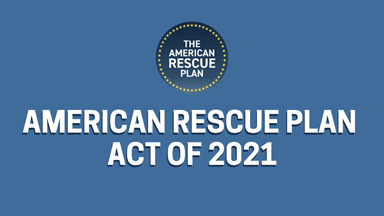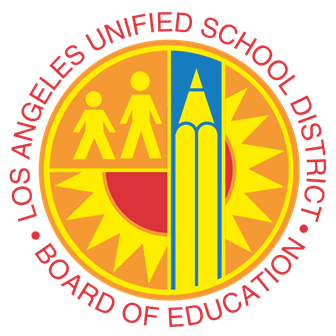Ed Dept defines maintenance of equity requirement for ARP funds – By Naaz Modan, K-12 Dive
The U.S. Department of Education on Wednesday released highly anticipated guidance on maintenance of equity requirements under the American Rescue Plan, the first of the three COVID-19 relief packages to formally prioritize it in Elementary and Secondary School Emergency Relief funding. The provision ensures states and districts don't make excessive cuts to supplant funding rather than supplementing it, which would disproportionately impact underserved districts and make the additional federal funding essentially ineffective.
Under the guidance, states cannot disproportionately reduce per-pupil spending for high-need districts and dip per-pupil spending below fiscal year 2019 levels for the highest-poverty districts. The provision also prevents districts from disproportionately reducing state and local per-pupil funding for high-poverty schools, and from disproportionately reducing the number of full-time-equivalent staff per student in those schools.
Maintenance of equity requirements will last until the end of fiscal year 2023, which would mean the end of the 2022-23 school year for districts. Districts should identify highest-need schools by ranking the schools' percentages of low-income students, ranked either district-wide or broken down by grade, with those in the top quartile considered the highest-poverty.

Senate Bill 249 becomes law to give Nevada students mental health days – By Jeremy Chen, KTNV
Taking a break to deal with the stress and pressure. Students in Nevada will now be allowed to have some time away from the classroom.
A Senate bill signed into law by Gov. Steve Sisolak is paving the way to address student mental health head-on and try to save lives in the process.
The pandemic has been a roller coaster for so many students and it was no different for these students from Bishop Gorman High School.
“We went from such busy schedules to a whole completely different world,” Lauren Edgeworth said.
A world where schools shifted to distance learning and not being able to see friends as often. The students say this has caused their peers to take mental health days as unexcused absences.

Governor Steve Sisolak
Changes steer audit of Colorado accountability system away from looking for bias in state tests – By Erica Meltzer, Chalkbeat
A bill ordering a wide-ranging performance audit of Colorado’s school accountability system has passed the Senate after skeptics amended the bill to focus more on narrowing persistent gaps in test scores and less on determining if the tests are biased.
The amendment was one of several changes the bill has undergone to rein in an audit some feared would be too slanted against the accountability system Colorado has used to monitor schools since 2009.
“Where this bill started was an attack on assessments, and where it is now is looking at changing our accountability system so that it’s working for our kids,” said state Sen. Jeff Bridges of Greenwood Village, who brought the amendment on the Senate floor Thursday with support from state Sen. Janet Buckner of Aurora.
House Bill 1294 orders an independent third-party review of Colorado’s school accountability system, which rates schools based on standardized test scores and allows for outside intervention in schools that don’t improve. The audit would ask whether the system meets the goals laid out by legislators, improves student outcomes, hurts certain student groups, and influences teaching practices in negative ways, among other questions. The audit would be due in November 2022.

LA Unified expands early literacy program – By Betty Marques Rosales, EdSource
After months of distance learning, literacy assessments at the beginning of the 2020-21 school year showed faltering reading levels among Los Angeles Unified’s youngest students. But a new program aims to change that.
Primary Promise was launched as a pilot program this past August to boost early literacy rates among young students attending L.A. Unified schools. According to the school district, reading scores have improved among all students who have joined, prompting a massive expansion of the program. What began as a pilot with 2,500 students will become a program with 14,000 students by the beginning of the 2021-22 school year, and the district intends to continue growing the program.
Across the state, other school districts have also implemented early literacy programs into their summer programming and their year-round curriculums. Kindergarten through second grade students in the Bay Area’s Alameda Unified, for example, are part of a reading program that uses whole-class, small group and individual instruction, in addition to assessments, to improve reading skills. In San Diego Unified, students with dyslexia and specific learning disabilities have the option to join a program that offers specialized instruction in reading. And in Elk Grove Unified near Sacramento, students can take part in literacy camps over the summer.
Few programs, however, have expanded as widely and quickly as L.A. Unified’s program.












